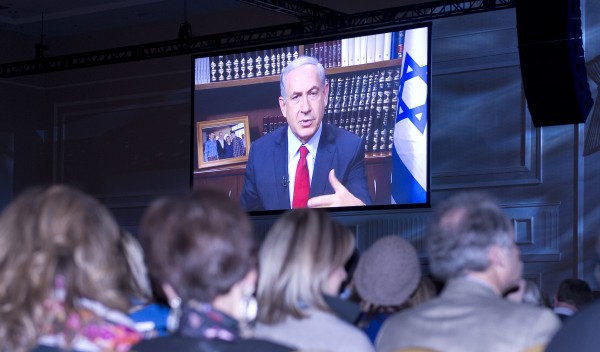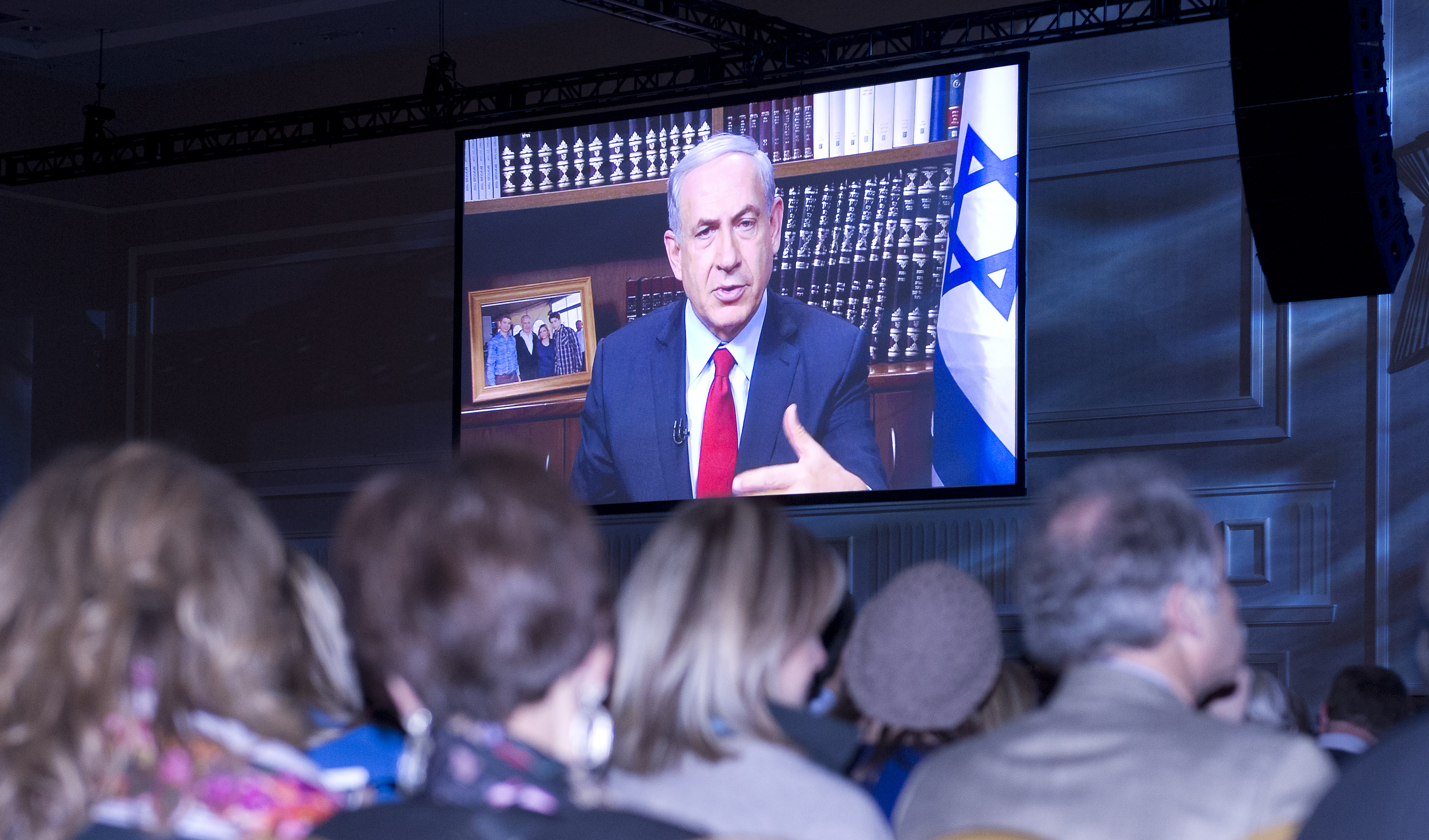
This Sunday, thousands of people will arrive in Washington, D.C. for the General Assembly of the Jewish Federations of North America. Just outside the GA, they’ll be joined by the Jewish People’s Assembly, a protest that its organizers from Open Hillel expect to draw around 100 attendees.
The protest, according to its website, has three primary demands: that the Federations not hold Jewish institutions to “political red lines around Israel/Palestine” as a condition of support, that they “stop holding Jewish communities hostage to the political views of their right-wing donors,” and that the Federations “support local Jewish institutions in creating vibrant, open Jewish communities.”
The influence of donors on major Jewish institutions has also been an issue this year in the contentious relationship of Hillel and J Street U.
Josh Strassman, one of Open Hillel’s campus coordinators and a student at UMass Amherst, said the main point of the Jewish People’s Assembly is to make JFNA answerable to the wider community.
“They claim to speak for all Jews, Jewish life in all of North America, and if they’re going to do that, then they should be accountable to their constituents,” he said.
Strassman added that the cost of attending the GA — $499 for general registration — is inaccessible to many.
“I would definitely say a lot of young Jews feel alienated and feel that the Federation and major Jewish institutions are not accessible, or really even take our positions into account.”
Caroline Morganti, the head of Open Hillel’s steering committee, said she and the other organizers came up with the idea for the protest while at a retreat in August.
There were plans for a spring conference, but Morganti, a student at MIT, said they’d wanted to hold an action in the fall because turnover in the student movement is high.
The ask — which she said she doesn’t expect to see fulfilled — is “for the [JFNA] to not impose these political litmus tests on Jewish organizations to get funding.
“But our more immediate goal also is just for people to know that this is an issue,” she said.
Morganti said she thinks it’s important for the Jewish community to have a conversation about who and what opinions it’s engaging with.
“It does seem like more and more people, especially young people who have very little power, institutional power in the Jewish community, are these people who are being disproportionately excluded,” she said.
The protest will cap a day of sessions planned to educate attendees about how the Federations work and how their policies affect “everyday Jewish communal policy,” as well as organizing training so that attendees can bring these skills home to their own communities.
“I don’t think this will change [JFNA’s] minds overnight, but I hope that can be the start of a conversation — I mean, we’ve already started the conversation about Hillel, but I think widening that conversation to the larger Jewish community is something that is a big part of our goal on Sunday,” she added.
Morganti said they haven’t seen a direct response from JFNA regarding the protest, but she did receive an email that was sent out to student attendees of the GA — which Morganti will attend after the protest — that included a note about protesters.
The email read: “During your time in Washington, you may come across people protesting against our conference or some of its participants. This is part of life in our nation’s capital and our democracy. We recommend that all JFNA GA participants, including students, remove their badge before leaving the hotel. We strongly encourage you not to engage or confront protesters. We are working to ensure that hotel security, JFNA security and other law enforcement officials are available on site if you need assistance. If you have any questions, please feel free to reach out to your program leaders or any JFNA staff members.”
Morganti speculated that the note might have been related to a planned protest by the Westboro Baptist Church — “so I’m hoping that the security concerns are more to do with them than us” — but when New Voices spoke with JFNA spokesman Steve Rabinowitz, he said he had not heard about the WBC protest.
Rabinowitz said the note extends to any possible protests, not just the one organized by Open Hillel, though he had previously only been aware of Open Hillel’s protest.
“[The WBC protest] also speaks to that inclusion issue, that inclusion misnomer that [Open Hillel] are talking about,” Rabinowitz said.
“Inclusion for them means affordability and accessibility, and that’s a legitimate issue, but for other people it means LGBT inclusion, or it means inclusion of people with physical disabilities — you know, it’s a big word.”
JFNA had heard about Open Hillel’s protest, he said, but had not been contacted by Open Hillel regarding their asks, and he criticized Open Hillel for not requesting to meet with JFNA before the protest. (Morganti said some of the protesters will go inside the GA to deliver copies of their asks to JFNA.)
“What are these folks talking about and why do they want to do the talking outside the GA and not inside Federations’ offices? I don’t understand … but perhaps I don’t understand because we’ve never met.”
He also said he didn’t understand Open Hillel’s criticism of “red lines” in the Jewish community.
“The Iran debate was a tough one, but where are the political red lines that have affected funding of the Federation world? Is it possible that these folks are confusing the Federation system and local Federations with other organizations that are perhaps more political?” Rabinowitz asked.
He added that JFNA considers itself to represent most of the Jewish community, but not the entire community.
“How could anyone? The tent’s too big … And I gotta say respectfully — and I’m not lecturing you, I’m just frustrated with them — anybody who says differently doesn’t know. You know? Hasn’t really asked around — is more interested in protesting than in talking, learning, fixing.”
Chloe Sobel graduated from Queen’s University and is editor in chief of New Voices.

